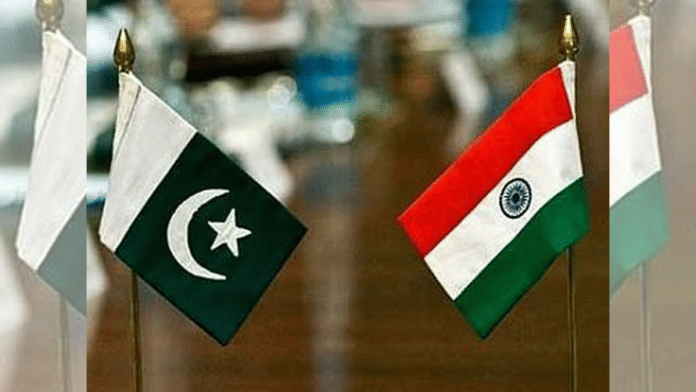Thank you dear subscribers, we are overwhelmed with your response.
Your Turn is a unique section from ThePrint featuring points of view from its subscribers. If you are a subscriber, have a point of view, please send it to us. If not, do subscribe here: https://theprint.in/subscribe/
First some context – My father is a decorated war veteran of the Indian army and was awarded the ‘Sena Medal’ for his bravery during the 1965 war. And I was born towards the tail end of the 1971 war. I grew up hearing stories from my parents about the ’65 war, about the blackouts right before I was born, etc, so the India Pakistan question is close to my heart, and I probably spend more time thinking about it than most other common citizens do. I used to think about it growing up in India and continued doing so after moving to America over two decades ago now from an NRI’s perspective. The topic came to the fore again after the recent Pehelgam terrorist attacks and I decide to jot down my thoughts.
My views on this big topic can be summarized along two main lines.
First, I often wonder what educated and rational Pakistani citizens and their global diaspora think of their corrupt army’s futile ‘death by a thousand cuts’ policy towards India for the last 70+ years, while driving their own country towards an abyss? Do they acknowledge the craziness of this policy and if so, are they willing to raise their voices and try to influence change? Maybe some of them are but their voices surely seem very muted.
Second, I marvel at Indian magnanimity despite this painful history. Leaving aside the occasional hiccup, most Indians seem to support continued patronization of Pakistani artists, business establishments and cricket players. Outside India, we continue eating at Pakistani restaurants and being inclusive by calling many of our institutions ‘South Asian’ or ‘Indus’ instead of just ‘Indian’, although they are founded and run by people of Indian origin and the Indian diaspora generally vastly outnumbers that from Pakistan (and other South Asian countries). We also don’t mind many Pakistani restaurants referring to themselves as ‘Indo-Pak’ cuisine although Indians have nothing to gain from this uninvited hyphenation. I wonder how much business these restaurants will lose if they drop the ‘Indo’ from their name or call themselves ‘Pak-Indo’ cuisine instead?
Personally, Shashi Tharoor echoed my long-standing thoughts on this issue, in a recent interview in Washington DC. A journalist asked him why the Indian government wasn’t talking to Pakistan. In response he said “Imagine that your neighbor unleashes his Rottweilers to bite your children and then says let’s talk. You think you’re going to talk to him until he either locks them up in a kennel or puts them to sleep”? To extend this logic further, will you patronize an artist or an athlete from this neighbor’s household? Now, you won’t violently attack them like you might do to their biting dogs, but you will do nothing that directly or indirectly helps them until they raise their voices and get the head of their household to stop petting such dogs.
Isn’t this how sanctions work? Don’t sanctions affect not just the governments of the sanctioned countries but also their common citizens? Yet they are accepted as necessary non-violent forms of retaliation. In the real world, you can never avoid some collateral damage trying to solve large challenging problems. Maybe something for us Indians to think about.
Having said all this, I am a peace-loving person at heart, like most Indians. That’s how I was brought up and my ongoing Yoga studies over the last 13 years have reinforced the values of peace and harmony. So let me close on a positive note. As naïve as this might sound, my optimisitc thesis is that while India has nothing of significance to gain from Pakistan, Pakistan could accrue great benefits from a larger, economically vibrant, technologically advanced neighbor like India if they were a peaceful neighbor, much like how Mexico has benefitted from the US in modern times. The US and Mexico have a much longer mutual history though, including that of conflict, so maybe these things take more time than the relatively short history between India and Pakistan. But I do hope that peace will prevail over conflict in the future!
These pieces are being published as they have been received – they have not been edited/fact-checked by ThePrint.


